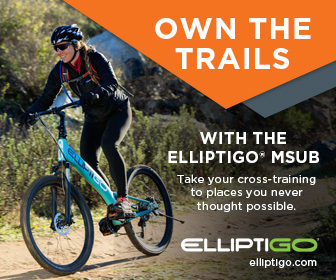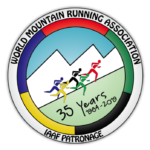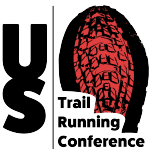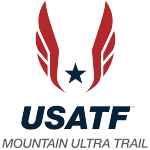
Written by Aimee Kohler, a competitive trail runner and race director at Blue Mountain Resort in Pennsylvania. Her passion for moving the sport to zero carbon is driven by her love for the trail, the community and combating the climate crisis.
As trail runners we get to experience a magical connection with nature that few other sports offer. It begins the moment we hit “start” on our watches and take our first steps on the trail; the sounds of our footfalls hitting soft earth mingled with the song of the birds and the rhythmic breath of our lungs; alone with the woods and everything it offers. We encounter the natural world as few others do – through a moving meditation. The innate connection between runner and nature is undeniable and unlike anything else I have ever known in my athletic career or otherwise.
When I found and fell in love with trail running, it quickly shifted the shape of my life. Shortly after entering the trail community, I became immersed in the details off the trail that would enhance my performance on it – writing training plans, making race schedules, adjusting my diet, and learning whatever I could do to become better, stronger and faster.
In early 2020 my attention turned to articles and YouTube documentaries about top athletes in the sport. I wanted to know how the pros were training to see if there was a common denominator in their approach. To my surprise what emerged as a crucial part of success – more than training regimens – was the importance of nutrition. Nutrition is essential to this sport. Trail running requires a large amount of energy and I discovered that without proper fueling I wasn’t going to rise to the elite levels I was and am hoping for.
When I first learned of Scott Jurek, who holds the Fastest Known Time (FKT) for the Appalachian Trail, it blew my mind to discover he adheres to a totally plant-based diet. I was shocked. But the more I researched, the more athletes I found were having huge success on plant-based diets; these included Fiona Oakes, Rich Roll, Carl Lewis, Brendan Brazier, Lucy Bartholomew and more. I wasn’t ready to commit completely, but I dipped my toe in and decided to cut cows and pigs from my diet. To my surprise, it wasn’t too challenging, and my body reacted quite well to the adjustment.
In late 2020, I was trending vegan, but still eating animals once or twice a week and relying heavily on eggs. Though I was becoming educated on the health benefits of a vegan diet, I had no idea there was another vital component that would help me cut the final animal products out of my diet.

Aimee Kohler
As a believer that the universe provides connections to each of us at important times, a new friendship came into my life. This beautiful, kind person (a 30-year vegetarian, the last 12 of which vegan) was well educated on these industries and her knowledge became a guiding force for me on this journey to veganism. I was learning unsettling and devastating things about the exploitation of animals in the farming industries and their effect on climate change.
“Animal agriculture accounted for at least 87% of greenhouse gas emissions [1].”
The process of absorbing this information is something that everyone must take at their own pace, as it is emotional. For me, it became overwhelming and drove me, inevitably, to commitment.
Looking back, it is clear my motive behind committing to a vegan diet circled back to my connection with nature. The more time I spent out on the trail as I learned more about the effects of an animal-based diet, the more I realized I was doing damage to places I care so deeply about.
My switch to a plant-based lifestyle has been rewarding – physically, mentally and emotionally. It not only has fueled a new passion within me but has propelled me forward athletically. On a vegan diet I was able to chip away at some of my athletic goals, even though I was training less.
I feel empowered by my choice to be vegan. It is something everyday that allows me to make a positive impact on the world. My driver to find veganism was health, however I choose veganism daily to protect the nature I appreciate and in doing so, my connection to the trail has grown stronger. We each have a responsibility to help build up the things we love, not break them down. Let this serve as a reminder that you can make an impact as a single individual. In doing so, you can improve your lifestyle and take steps to achieving your goals.
“Vegan diets have the smallest carbon footprint, generating 41.7% less greenhouse gas emissions than diets that include meat [2].”
I am not an expert in any of the above areas, however I felt it important to share the positive experience I had on my journey to becoming a vegan athlete. Becoming a vegan athlete is a rewarding way to take steps toward becoming a zero-carbon sport. As we are continuing to grow as a community, I encourage you to please feel free to reach out with questions, comments or just to connect! Let us challenge each other to be better people and athletes in order to continue the growth of this sport we all love.
References:
[1] animal agriculture position paper – Climate Healers
[2] www.someveganfacts.com
Aimee Kohler is no novice on the trail. She has seen early success in the sport, obtaining several Fastest Known Time records, winning World’s End Half Marathon, and achieving several Spartan elite podium placements over the past two years. During her journey on the trail, she found her way to a plant-based diet and credits her success this past year to that lifestyle change. In addition to her running success, she has hosted over twenty trail events at Blue Mountain. Moving forward, her races in 2022 are planned to be zero carbon events. Follow Amy at: @aimskoh










